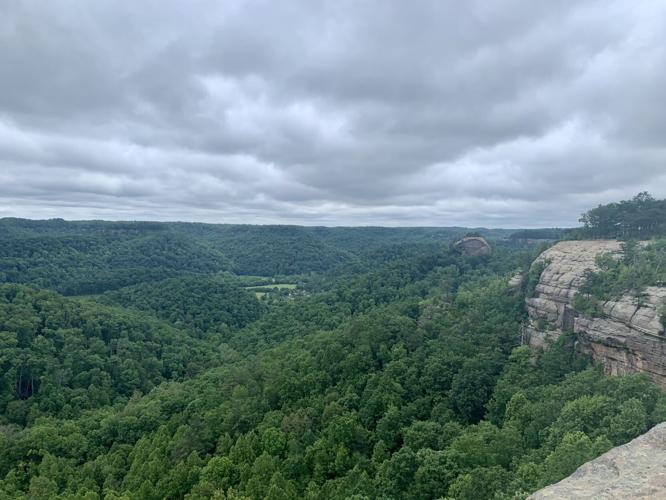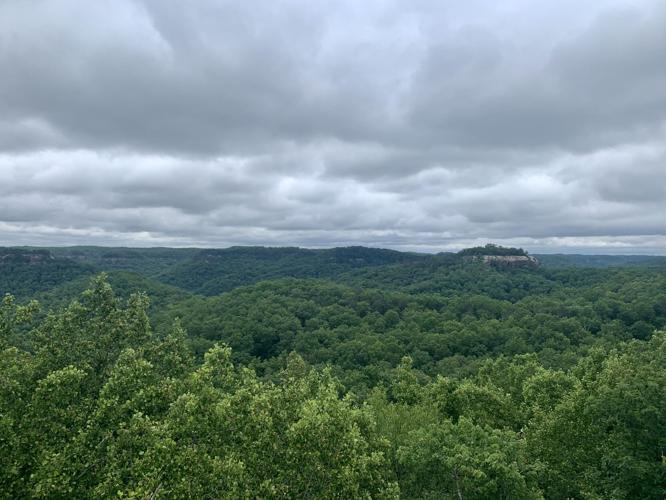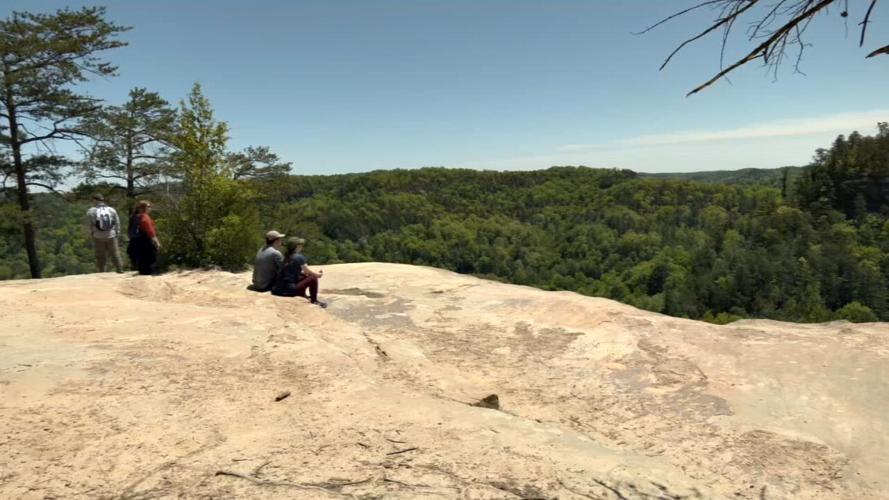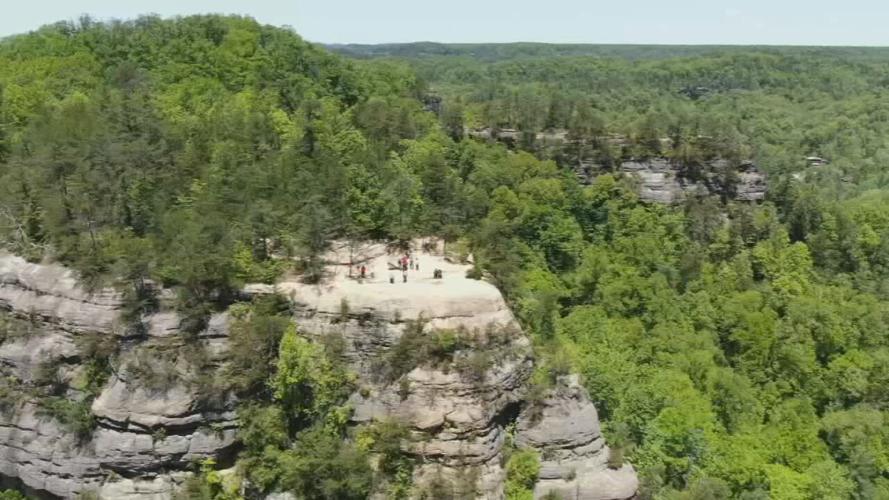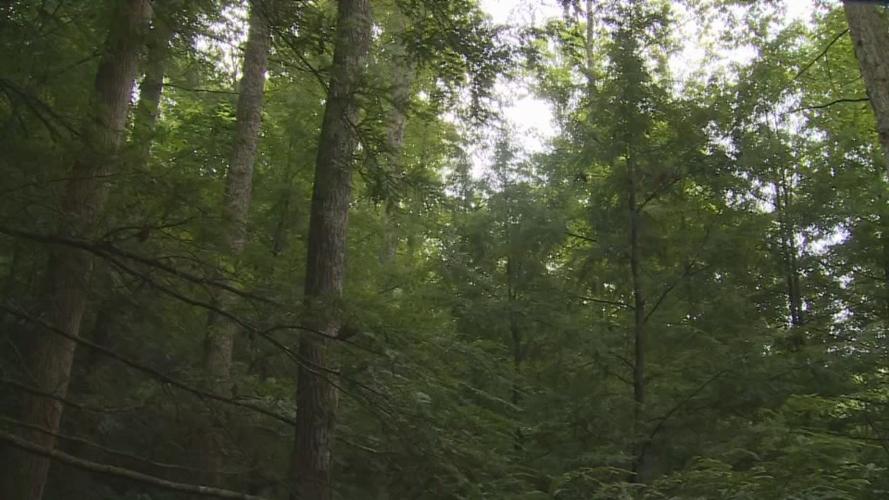LOUISVILLE, Ky. (WDRB) -- It's hiking season, and as people hit the trails, a man who specializes in performing technical rescues is urging hikers to have a plan in place.
Jeremy Urekew, a technical rescue specialist with Red STAR Wilderness EMS, told LEX 18 he has been on the other side of what was expected to be an "easy hike" more times than he can count.
"It seems like an easy hike when you're going in," he said. "It's really difficult when you can't walk and someone has to carry you out."
Urekew has helped provide emergency medical services for Red River Gorge for years. He assists the search and rescue teams that respond to calls for help if medical aid is needed.
On Saturday, he rendered aid to a person who fell 90 feet from a cliff and survived.
"We couldn't see him down there, we could only hear him," Urekew said. "He had no flashlight -- no anything. He was moaning and groaning, so we found some alternative ways to be able to go down and around to the bottom."
Urekew was the paramedic who began initial care and assessment.
"The rest of the team gathered at the top and began a technical rope rescue system to be able to retrieve him from all the way down and back up," he said. "In the course of that, the weather deteriorated rapidly. Some thunder and lightning came in, which complicated the situation."
Powell County Search and Rescue, Tri-County Volunteer Fire Department, Middlefork Fire and Rescue and Lee County Search and Rescue spent hours moving the victim from his remote location to the ambulance.
"We had to enlist the help of multiple jurisdictions," said Urekew. "One of the jurisdictions brought an ATV with a litter cart that we could take this victim off-road and get them out."
Urekew said the victim's fall was broken, so he was able to survive and communicate. He said any fall could be fatal.
Red River Gorge sees about 60 rescues per year, on average, with a spike typically occurring during the summer.
On the first weekend of spring weather in Kentucky, rescue teams from Powell and Wolfe counties responded to three serious falls. One victim remains hospitalized.
Dr. Jonathan Bronner, an associate professor of emergency medicine and the director of simulation-based education with the College of Medicine and Department of Emergency Medicine said the University of Kentucky's Trauma Center gets the majority of injury calls, as it's the only Level One Trauma Center outside of Louisville.
"We see things from extreme climbers falling from Red River Gorge, hundreds of feet, to people even doing hikes at some of our parks, that are falling down creek banks and smaller rocks too," Bronner said. "And they come in with any number of extremities from their head to their torso."
He said they are mostly ankle or wrist injuries -- and weather is often a factor.
"Once the weather starts getting nice, we lovingly refer to that as trauma season," he said. "Not because we're looking for it, but because people are out doing more things."
David Fifter, a founder and paramedic with Red Star Wilderness EMS, teaches as the director of the UKU Center for Wilderness and Outdoor Public Safety.
He said falls from cliffs happen at Red River Gorge every year.
"It's not any more dangerous than any other kind of activity, but you know, if you find yourself stranded overnight and you don't have a flashlight and your cell battery goes bad and you run out of water, you know something that could have been just an enjoyable trip turns into a full-blown emergency," he said.
He offered several safety tips:
- Tell someone where you will be and when to expect you. "That way, if you get into some sort of trouble and you need to be rescued, that way people know where you are and what time you're expected to be back."
- Make sure your cell phone is fully charged and consider bringing a backup battery brick.
- Make sure the location settings on your phone are set up correctly to allow location sharing.
- Bring plenty of water was well as salty snacks or electrolyte tablets. The balance of sodium and water consumed is just as important as drinking water itself.
- Pace yourself and play it safe. Err on the side of risk management.
- Carry trail maps. These can almost always be found online, but cell phone batteries die, and you won't always have cell service. Even if you aren't great at reading maps or using a compass, a paper map can help get you oriented.
- Consider taking a basic wilderness first aid course.
- Research the trail ahead of time.
"Do a little bit of research and know your limits," he said. "Look into the trail system, look at the weather forecast. Give some real thought to your own physical fitness -- what kind of footwear, what kind of clothing do you have?"
Copyright 2023 by WDRB Media. All rights reserved.
